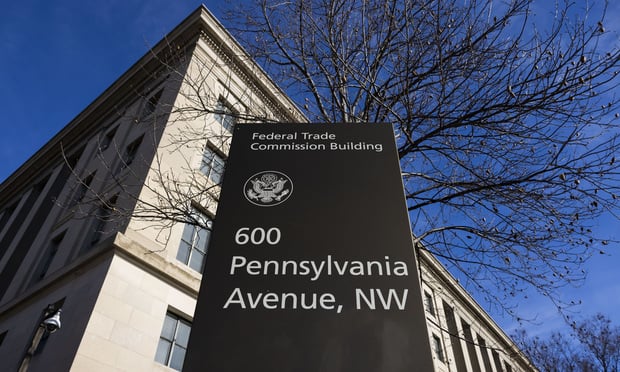When it comes to protecting your credit union's reputation from crisis-driven adversity, I've found it pays to expect the unexpected.
The financial meltdown has been a painful reminder to the financial services industry that a good reputation, which takes years to cultivate, can quickly sour. While credit unions still wear the white hats, they have nonetheless been affected by the financial crisis. Sadly, the mistakes of a few too often reflect on the many.
From security breaches to financial performance, internal and external issues can damage your credit union's hard-earned reputation. And they can arise with little or no warning. It pays to be prepared with a crisis communications plan and keeping it up to date.
Just like the SWOT analysis and financial forecasting, an effective crisis communications plan is essential to managing-and rapidly recovering from-threats to business relationships. So, what are the steps to get started?
Choose the right assistance. Developing an effective crisis communications plan takes time and expertise-something best achieved with outside help. This is one situation where selecting an external public relations counsel skilled in managing communications crises can be critical.
Identify the crisis communications team. In addition to the CEO, the core team comprises external PR counsel, internal communications officer, chief operating officer, human resources officer and legal counsel. Depending on the issue, other team members may be included.
Perform an issues-management assessment. Set aside time for the management team and legal counsel to meet with your PR counsel and review your business plan. Look at your latest regulatory exam, performance data, personnel issues; competitive factors and economic, technology and political trends to gain critical insights about your credit union and its operating environment.
Think about what is on the horizon that might affect your credit union, how likely an event is to occur and what impact could it have on your reputation. Internally this might include layoffs, exam findings or product and service failures. External events could include new competitive pressures, economic changes or threats from the broader financial industry or policymakers.
Obviously, not all crisis situations are created equal. Yet armed with answers honed by the issues management process, your crisis communications team can cut its overall challenge down to size by prioritizing issues. Focus on issues representing the highest inherent negative impacts and probability of occurrence.
Create the crisis communications plan. Now, it's time to put pen to paper. Your PR consultant can help draft an effective plan for informing stakeholders when and if bad news occurs. This includes considering your credit union's position on each identified issue. What core messages might mitigate potential damage? What communications channels can be tapped to proactively tell your story?
Your plan must address several policy issues. What's the chain of command for communicating about a crisis? When should you go public? Who is the official spokesperson? At the earliest opportunity, strive for consistent message control by proactively telling your side of the story before any breaking news occurs.
If you wait to confront sensitive issues until after reporters begin calling, you're apt to face a costly and uphill battle while the credit union's image takes a beating. If you lose control of the story or only offer a no comment response, the odds of maintaining accurate and fair media coverage decline dramatically.
Besides creating and annually updating your crisis communications plan, build credibility with the media with an ongoing media-relations program. Research the reporters who cover your local marketplace and the topics that interest them. Offer comment or appealing story ideas on financial news trends.
Just as importantly, always be honest. Reporters' trust is essential to getting your side of the story told while assuring accuracy in the coverage. Unless you achieve and maintain the media's confidence, they may have to rely on unofficial commentary from unnamed sources.
Although you may be most concerned about local reporters, don't ignore the trade press. Consumer-focused reporters frequently monitor trade journals within their fields of interest. Negative articles published in trade press can trigger damaging local coverage as well.
When drafting your crisis communications plan, consider you're on trial in the court of public opinion. Develop your central theme and supportive messages as if you're going before the judge.
A picture-perfect crisis communications plans doesn't exist, but not having an up-to-date plan can be costly. It's far easier-and less expensive-to adapt your general crisis communications plan than to start from scratch after the firestorm hits.
Margaret J. Blankers is
president of MJB Public Relations Group. She can be reached at 913-385-2230 or [email protected]
Complete your profile to continue reading and get FREE access to CUTimes.com, part of your ALM digital membership.
Your access to unlimited CUTimes.com content isn’t changing.
Once you are an ALM digital member, you’ll receive:
- Breaking credit union news and analysis, on-site and via our newsletters and custom alerts
- Weekly Shared Accounts podcast featuring exclusive interviews with industry leaders
- Educational webcasts, white papers, and ebooks from industry thought leaders
- Critical coverage of the commercial real estate and financial advisory markets on our other ALM sites, GlobeSt.com and ThinkAdvisor.com
Already have an account? Sign In Now
© 2024 ALM Global, LLC, All Rights Reserved. Request academic re-use from www.copyright.com. All other uses, submit a request to [email protected]. For more information visit Asset & Logo Licensing.









